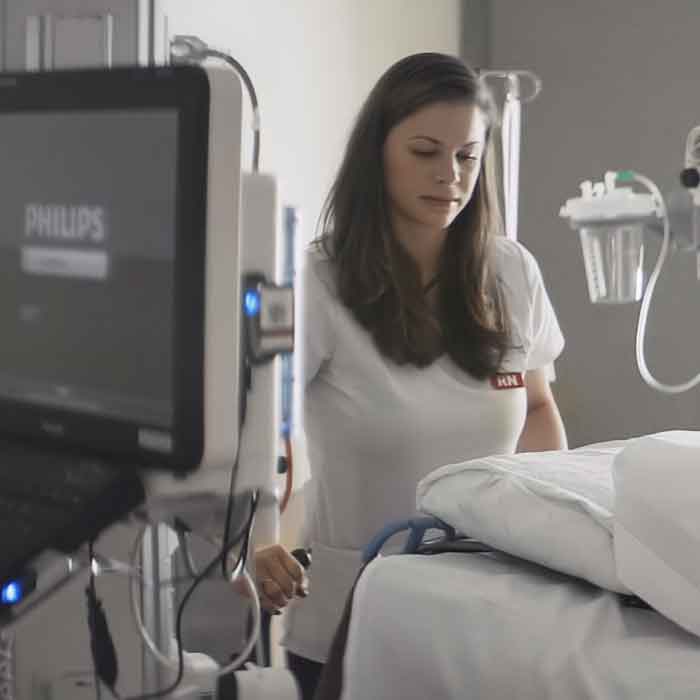
No bounds. Better healthcare.
Nursing in a value-based healthcare system

The quality of care that's delivered by healthcare institutions is really the definer."
Mary Jo LaPosta, MS, PhD, RN Senior Vice President, Patient Care and Organizational Excellence Chief Nursing Officer Saratoga Hospital
Q. What is the role of a nurse in a value-based healthcare system? Now, good care is getting paid more than mediocre care or bad care. So as we move into an era of value-based purchasing - or pay for performance - the quality of care that's delivered by health care institutions is really the definer. It's not how many people you care for but how well you care for those people and much of the influence on the quality of the care, how well it's done, is based upon nursing practice. Q. What are some of the pressures nurses face today? Nursing care has always been measured, most of the time, by the individual clinician themselves. Nurses wanted to leave at the end of the day knowing that they had delivered great care. Now, increasingly, the measurement of that care is not what the individual thinks about their care. It's not even what the members of the healthcare team think about care. The ‘care’ is now measured by external benchmarks. How does the care that's delivered here at Saratoga Hospital compare with the best care in this country and the best care in the world? That's a great deal of pressure on our nurses. Q. How important is patient satisfaction? Q. How can nurses be better supported to deliver quality care? Q. How has the patient profile changed at Saratoga Hospital? Q. How can hospitals prepare for the future of care? What we need to do, is we need to figure out how we can be a nimble organization, continue to operate within today's reimbursement system, maximize our revenue by maintaining our volume and giving excellent care, while still getting ready for a time in which the reimbursement will be less and less for acute services and increasingly on those services that keep people at a high level of wellness and keep them at a distance from acute care that was classically delivered in the hospital. And we find ourselves right there, right now.
Our nurses are extraordinarily concerned with how our patients perceive their care and what their level of satisfaction is with the care that's delivered. They want our patients to be satisfied and believe, at the end of the day, that they were cared for and cared about. I've always believed that for nurses to deliver care to patients in which patients feel well cared for, our nursing staff needs to believe that they're cared for and cared about.
They need to believe that there's a voice at the table for them. Our investment each year has been looking at the type of care that our nurses deliver, and asking them what they need to be the best they can be. We want nurses to leave at the end of the day believing that they have the tools to deliver high-quality care to their patients.
As a hospital, we've been pushed to shorten the length of stay. I remember when I first came into nursing, if you had your gall bladder out you were there for around seven days. So as nurses, we always had those patients who were sick for the first couple of days after surgery and then we had those who were walking around the corridors in their bathrobes, visiting with family, laughing with the nurses, but none of those patients are in the hospitals anymore. The only patients that are in hospitals today are the sicker patients.
See how Saratoga Hospital
Reduced codes
on the ward.
Now, good care is getting paid more than mediocre care or bad care.”
Senior Vice President, Patient Care and Organizational Excellence Chief Nursing Officer Saratoga Hospital
Mary Jo LaPosta
MS, PhD, RN

No bounds.
Better healthcare.
There's always a way to make life better.
DISCLAIMER: Results are specific to the institution where they were obtained and may not reflect the results achievable at other institutions.

